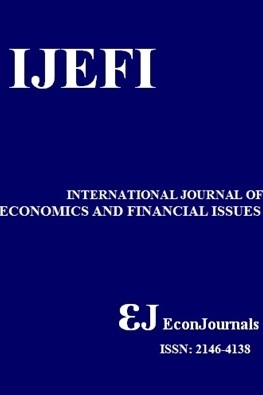Peculiarities of Formation of Innovative Territorial Clusters in Russia
Peculiarities of Formation of Innovative Territorial Clusters in Russia
cluster, cluster policy innovative development, regions, competitiveness,
- Başlangıç: 2011
- Yayıncı: İlhan ÖZTÜRK
The Virtual Space Simulation of the Regional Governance System
Oleg M. BARBAKOV, Marina L. BELONOZHKO, Svetlana S. SİTEVA, Anatoliy L. KOLTUNOV, Lidia N. BELONOZHKO
Trans-aquatorial Clustering within the Trend of Cross-border International Economic Interactions
Alexandr G. DRUZHİNİN, Vasilisa V. GOROCHNAYA, İgor A. DETS, Stanislav S. LATCHNİNSKY, Andrey S. MİKHAYLOV, Denis A. VOLKHİN
Development of Cluster Integration in Agricultural Sector of the Republic of Kazakhstan
Elmira Omirserikovna KYDYRBAYEVA, Balhiya Kulmesovna SHOMSHEKOVA, Saule Shaudirbaevna BİSENOVA, Bibigul Hamitovna KYLYSHBAYEVA
Contemporary State of Resource Potential of Agriculture in South Russia
Vladimir İvanovich TRUKHACHEV, İgor Yurevich SKLYAROV, Julia Mikhailovna SKLYAROVA, Lyudmila Anatolevna LATYSHEVA, Helena Nikolayevna LAPİNA
İrina V. VOLCHKOVA, Maria N. DANİLOVA, Yulia V. PODOPRİGORA, Evgeniya V. UFİMTSEVA, Alexey A. SELİVERSTOV, Nikolay R. SHADEYKO
Assessment of Human Capital in the Agricultural Enterprises of the Republic of Kazakhstan
Zhanna Serikovna BULKHAİROVA, Karlygash Toleubaevna ALENOVA, Anar Zhaskaratovna NUKESHEVA, Aliya Sabirzhanovna ISMAİLOVA
Economic Globalization: Challenges and Threats of the Russian National Security
Olga Mikhailovna Shevchenko, Alexandr Viktorovich Dyatlov, Zarema Khasambievna Kurmalieva, Yury Grigorievich Volkov, Alexandr Vasilyevich Popov
Roman V. FEDORENKO, Natalia P. PERSTENEVA, M. E. KONOVALOVA, Y. A. TOKAREV
Natalia O. NEMAEVA, Anastasia M. OBMOROKOVA, Aleksei V. KHVASTUNOV
Development of Hungary’s Manufacturing Industry in the Conditions of European Integration
Mihail Nikolaevich DUDİN, еvgenia еvgenevna FROLOVA, Natalia Andreevna VOYKOVA, Marina Vladimirovna GALKİNA, Vitaly Aleksandrovic VERNİKOV
